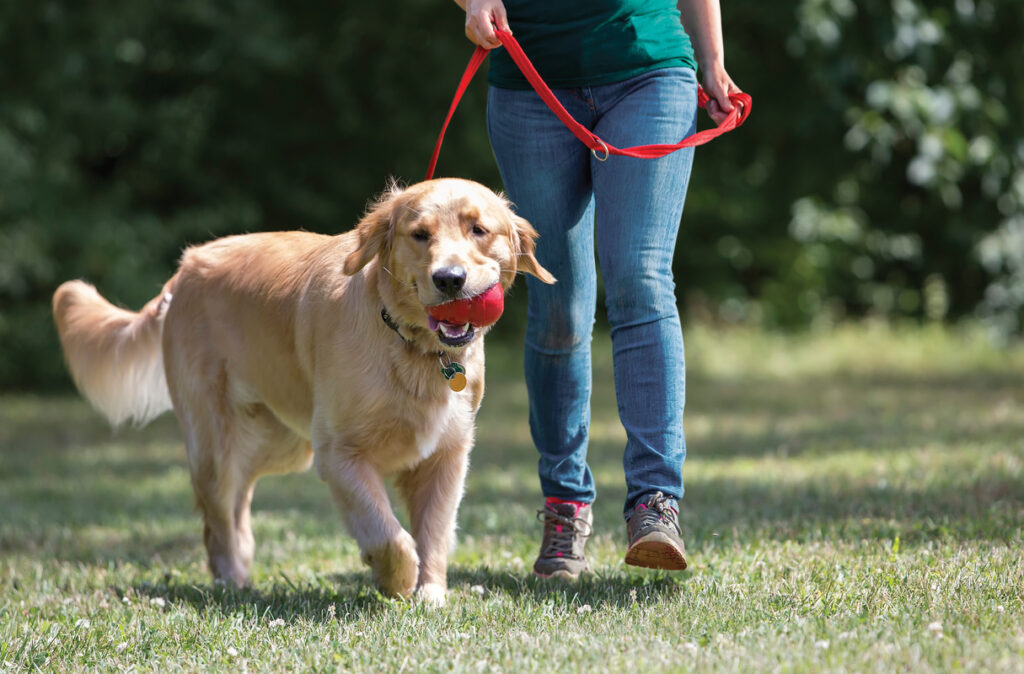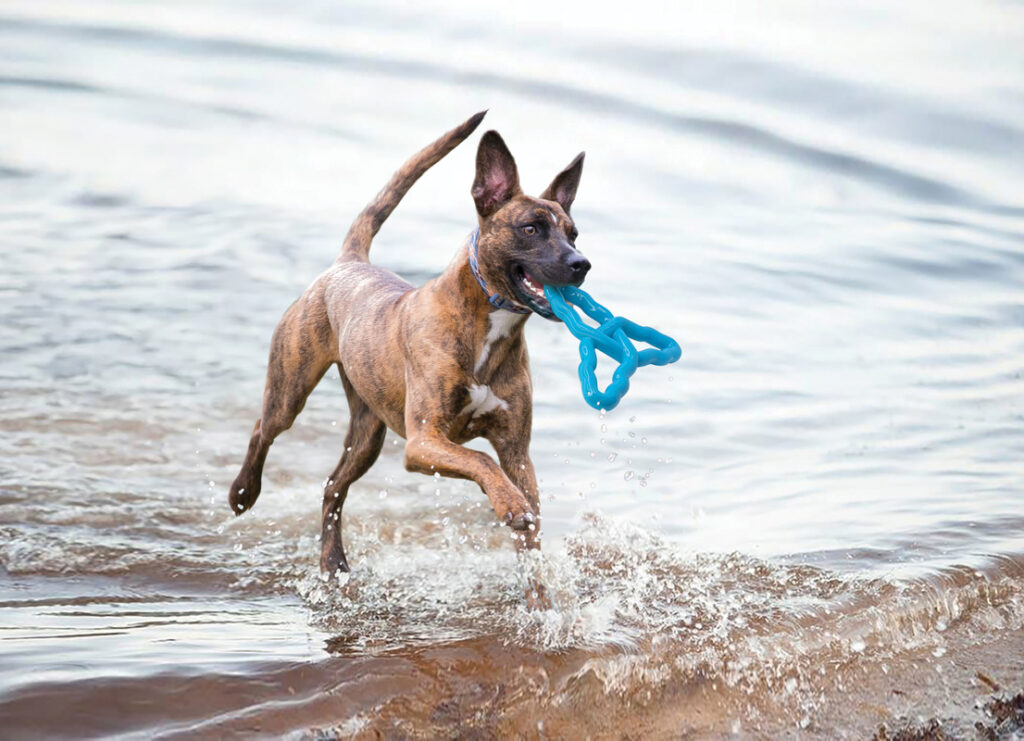We love treats, but sometimes treats don’t love us. They may be too high in fat or sugar, which is not great for our bodies. The same goes for our furry best pals; we know they love to enjoy treats as well. Too many treats can cause the calories to add up and cause weight gain, which brings its own set of health issues, especially if the weight gain causes a dog to become obese.
Obesity is a leading contributor to diabetes in dogs, but other health issues may cause diabetes as well. Luckily diabetes may be very treatable given the right management plan and continued monitoring. Many dogs diagnosed with diabetes continue to live a full and bark-filled fun life, and you’ll get to enjoy treating them (carefully!).
How Do I Take of a Diabetic Dog?
When your dog is diagnosed with diabetes, you and your dog’s veterinarian will likely begin a plan for therapy and continued management. Insulin therapy might be the starting point for managing your dog’s diabetes. This process can be trial and error as your veterinarian determines which insulin and dosage are best for your dog.
Continued checkups will continue as your veterinarian dials into the perfect dose for your dog. Your veterinarian may also instruct you on how to use urine strips to monitor your dog’s glucose levels. Other variables to consider regarding insulin dosage tend to be weight, activity level, and diet.
Your veterinarian will instruct you on how to administer insulin to your dog. No worries, you can do this! Most injections are right under the skin, and the needle is so small and sharp that your doggo will hardly feel a thing. Your veterinarian may suggest that you practice on a piece of fruit first, so you can learn to distinguish between the layers of the fruit’s peel and the flesh of the fruit.
If your dog is overweight, your veterinarian will likely suggest a long-term weight loss plan. This will help reduce any further health risks that may come along with being overweight. As your dog loses weight, your veterinarian will continue to monitor your dog’s glucose levels as their insulin dosage will likely need to be changed as your dog’s weight changes.
Regular exercise is important as well. Keep your dog active by going on walks or playing with toys every day. Make sure you consult with your veterinarian about how long your dog should exercise and how often, as we don’t want them to become too active and get sick from over-exercising.
What Should My Diabetic Dog Eat?
Diet should be carefully managed. Often, vets will recommend that your dog eats at a consistent time each day so that insulin injections can be given afterward (in some cases). Generally, we don’t want to give insulin to our dogs before they have eaten, as there may be a chance your dog won’t want to eat. Then, your dog could possibly start to become ill if they are given insulin on an empty stomach.
Ideally, feeding your dog every twelve hours will keep them on a good schedule and their glucose level at a constant level throughout the day, but each case varies. The added plus of a carefully managed diet can be weight loss for your dog if they are overweight. Fat can affect how insulin is absorbed in the body, so any weight loss can help reduce the amount of insulin your dog needs.
A high-fiber, low-fat diet is usually recommended for dogs with diabetes. The fiber should be an insoluble type, which slows digestion and helps your dog feel full. Along with the low fat, which has lesser calories, this feeling of fullness can be an added benefit in helping your dog lose weight if a part of their diabetes treatment plan.
When developing your dog’s diet plan, be sure to avoid foods with added sugars or a large number of carbohydrates — both of these things can cause havoc on your dog’s glucose levels.
What Treats Can My Diabetic Dog Have?
Treats will need to be carefully calculated into your dog’s diet. In many cases, this could amount to roughly 10% of your dog’s daily total nutrients. While we love being able to give our dogs treats when they act so sweet (which is all the time), it’ll take a bit of planning to ensure you stay within the proper dietary parameters.
Just like their food, you’ll want to avoid added sugars and carbohydrates. Proteins are best as they will be low fat. No worries, here are some easy and healthy treats for your dog that will keep them feeling the love from you but also help keep them healthy.
Of course, you’ll want to double-check with your veterinarian if these suggestions will work for your dog and their treatment plan. Who knows, they may have even more diabetic-friendly treat ideas!
Freeze Dried Proteins
Treats that are freeze-dried have had their moisture removed. You can find freeze-dried chicken, beef, and liver treats that your dog will love. They will also enjoy the light, crunchy texture that comes from being freeze-dried.
A special way to give your dog treats while extending the fun is to put them in a treat-dispensing toy, like KONG’s Biscuit Ball, which can hold delicious morsels of food that your dog will go absolutely crazy over. They’ll love chasing the ball around and trying to get the treats loose.
It’s a great tool to combat canine boredom as well as a fantastic way to encourage movement.
Veggie Jerky
Vegetables are healthy snacks, but you aren’t going to see your dog happily crunching on a raw carrot stick. They are ideal for treats, as they are high in fiber and have no added sugars, although there may be a small amount of natural sugar. We just need to make it a little more appealing for your pup.
To make veggies more palatable for your dog, you can turn vegetables into jerky so that your dog has something with a little chew but no harmful ingredients.
Carrots are a great choice for veggie jerky, and the process is so simple. Just blanch some carrots, slice them, and then place them in an oven on low heat until they are dehydrated. They will resemble jerky as they become darker in color.
Scrambled Eggs
Not just for breakfast, your doggy will love a soft and warm scrambled egg as a treat. Hold off on all the spices and seasonings you would add to your eggs, though. These may upset your dog’s tummy, so they just need a plain egg.
Frozen Yogurt Treats
You scream; I’ll scream, our dogs will bark for… frozen yogurt? Yes! This yummy treat will give your dog the satisfaction of creamy ice cream but will fit much better into their diet plan. Low-fat plain yogurt spooned into small dots on a cookie sheet, then placed in the freezer, will give you the perfect yogurt “chips” you can give to your pup on warm days.
You can mix things up by putting fruits on the yogurt as it freezes, like berries or apples. Your pup will happily bark up a storm to get their paws on these “sweetish” slices of heaven.
Keep in mind that dogs can tend to be lactose intolerant, so check for non-dairy variations or even frozen yogurt made just for our pups.
Pumpkin
Pumpkin is another good option for our diabetic buddies. You can give a spoonful or two on its own, with a tiny sprinkle of cinnamon on top; so yummy! Or you can do two treats in 1 and mix them into the previously mentioned frozen yogurt treats.
While you enjoy a pumpkin spice latte for your treat, your pup can enjoy some pumpkin for their treat. We just love twinning with our dogs!
KONG Club: Helping Keep Your Dog Active & Healthy
Diabetes can be a scary diagnosis for your dog. With the continued partnership with your veterinarian and a successful plan put in place, your dog can have an active life. Being a member of the KONG Club keeps being active easy.
Being a member of the KONG Club gives you access to our team of vets from AskVet for all of your diabetes-related questions. They’re a great resource to have in your back pocket whenever you need a quick word.
Join the club today so you can have one membership that gives you and your dog so much! Keep your dog active and yourself well informed with the KONG Club.
Sources:
Diabetes in Pets | American Veterinary Medical Association
Managing canine diabetes | Cornell University College of Veterinary Medicine



